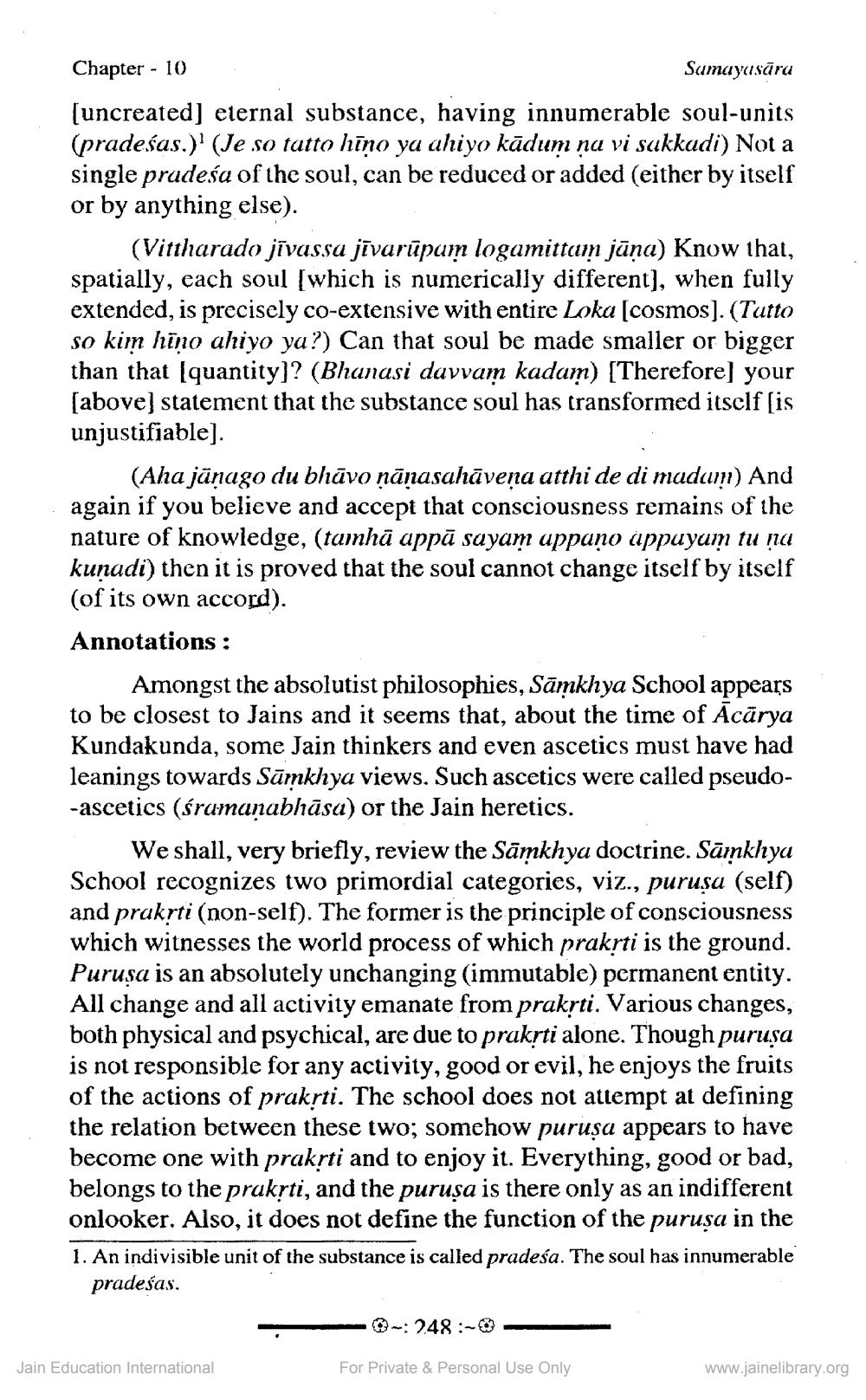________________
Chapter - 10
Sumayasāru (uncreated] eternal substance, having innumerable soul-units (pradeśas.)' (Je so tatto hīņo ya ahiyo kādum nu vi sukkadi) Not a single pradeśa of the soul, can be reduced or added (either by itself or by anything else).
(Vittharado jīvassa jīvarūpam logamittam jūņa) Know that, spatially, each soul (which is numerically different], when fully extended, is precisely co-extensive with entire Loka (cosmos). (Tutto so kiin hino ahiyo ya?) Can that soul be made smaller or bigger than that Iquantity]? (Bhanasi davvam kadam) [Therefore) your (above) statement that the substance soul has transformed itself is unjustifiable]
(Aha jānago du bhāvo ņānasahāveņa atthi de di madurn) And again if you believe and accept that consciousness remains of the nature of knowledge, (tamhū appā sayam uppaņo appuyum tu na kunadi) then it is proved that the soul cannot change itself by itself (of its own accord). Annotations :
Amongst the absolutist philosophies, Sāmkhya School appears to be closest to Jains and it seems that, about the time of Ācārya Kundakunda, some Jain thinkers and even ascetics must have had leanings towards Sāmkhya views. Such ascetics were called pseudo-ascetics (śrumanabhāsa) or the Jain heretics.
We shall, very briefly, review the Sāmkhya doctrine. Sāmkhya School recognizes two primordial categories, viz., puruşu (self) and prakrti (non-self). The former is the principle of consciousness which witnesses the world process of which prakrti is the ground. Purusa is an absolutely unchanging (immutable) permanent entity. All change and all activity emanate from praksti. Various changes, both physical and psychical, are due to prakrti alone. Though puruşa is not responsible for any activity, good or evil, he enjoys the fruits of the actions of prakrti. The school does not attempt at defining the relation between these two; somehow puruşa appears to have become one with prakrti and to enjoy it. Everything, good or bad, belongs to the prakrti, and the puruşa is there only as an indifferent onlooker. Also, it does not define the function of the purusa in the 1. An indivisible unit of the substance is called pradeśa. The soul has innumerable
pradeśas.
Q-: 248:
Jain Education International
For Private & Personal Use Only
www.jainelibrary.org




